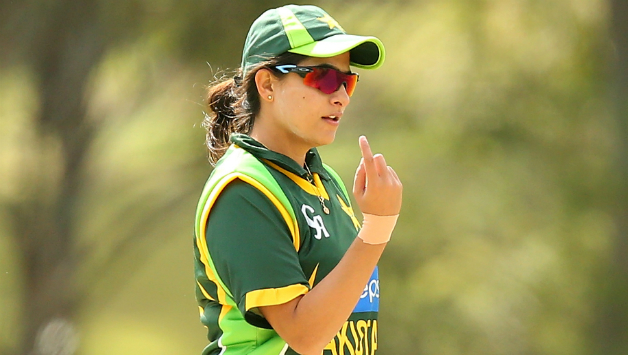
Cricket Country Staff
Editorial team of CricketCountry.
Written by Cricket Country Staff
Published: Aug 02, 2017, 01:40 PM (IST)
Edited: Aug 02, 2017, 01:40 PM (IST)


Pakistan Women’s journey in 2017 Women’s World was a disappointment for the fans. The team lost all their group stage matches, and were never in hunt to qualify for the next round. While team’s failure is generally deployed upon the team’s overall performance, team’s coach Sabih Azhar, in his report on team’s performance, majorly blamed captain Sana Mir and the senior members for the debacle. Azhar also raised a finger at team manager Ayesha Ashar, blaming her of being partial towards cricketers including Sana, Javeria Khan and Nain Abidi. READ: Sana likely to lose captaincy after Pakistan’s poor show in WWC17
EspnCricinfo disclosed parts of a 14-page report that Azhar submitted on the team’s performance. “My humble view is if the set of these four – three players and manager – continue with the national team, there’s absolutely no chance of players’ growth in the team. Juniors need confidence of the seniors, but if they are always criticised and face negative remarks, it would shake their confidence very badly and we should forget growth of women’s cricket in Pakistan,” read a part of the report.
“It became clear that the captain Sana Mir is self-centred or self-absorbed; typically she is the last to know it. Her denial to accept self-centredness overshadows her good qualities of confidence and esteem,” he wrote about Sana. “The captain was so much negative in her approach that she inculcated fear among other team members during team meetings on number of occasions. She used to praise opponent players a lot instead of backing her own players to do well. Eventually, the captain’s negative approach did damage the confidence of our batters and bowlers and they couldn’t play their natural game during matches. Similarly, the captain selfishly used to bowl herself at such a time during the match when she knew that the batters won’t go after the bowling and her bowling figures won’t be destroyed. She had a jealousy factor in her mind that what will happen if the other bowler takes a wicket or two and gets an extended spell of bowling,” he added.
His assessment of senior players read, “Too many of our so-called role models, don’t give a hoot about anything except themselves. To them, the ‘team’ is nowhere near as important as the ‘me’. ‘What’s in it for me? I want more playing time. I should be starting instead of them! My average, My stats, My salary, etc.’ Similarly, Sana Mir’s ‘me-whining’ affected the mindset of aspiring young players to understand how important teamwork really is to success and any team game is not about ‘me’, it’s about ‘we’!”
He particularly mentioned a few matches which, according to him, Pakistan could easily win.
“We could have won our opening league match against South Africa before losing narrowly because the girls couldn’t handle the pressure at crucial moments. In the second match against England, our bowlers gave too many runs – 377 – and the match was over before our batters went in.
“Against Sri Lanka and the West Indies, our team once again couldn’t give the finishing touches and lost both games. Overall, I believe we could have won at least three league matches – against South Africa, India and Sri Lanka – but the team lacked finishing approach at crucial junctures which cost us the games.”
“The manager was inclined towards three players and sometimes her behaviour with junior players was very cold. No doubt, maintaining discipline is something which is the foremost job of the manager, but I felt most of the junior players were uncomfortable with the attitude of the manager, who is with the national team for the last nine years,” was Azhar’s report on team’s manager.
This website uses cookies so that we can provide you with the best user experience possible. Cookie information is stored in your browser and performs functions such as recognising you when you return to our website and helping our team to understand which sections of the website you find most interesting and useful.
Strictly Necessary Cookie should be enabled at all times so that we can save your preferences for cookie settings.
If you disable this cookie, we will not be able to save your preferences. This means that every time you visit this website you will need to enable or disable cookies again.
